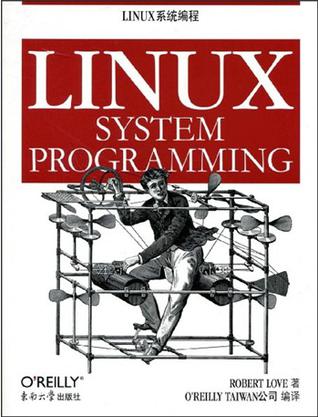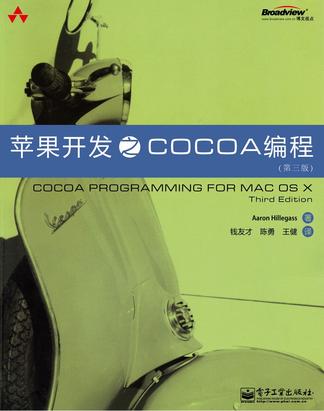-

Learning Python
Amazon.com Review The authors of Learning Python show you enough essentials of the Python scripting language to enable you to begin solving problems right away, then reveal more powerful aspects of the language one at a time. This approach is sure to appeal to programmers and system administrators who have urgent problems and a preference for learning by semi-guided experimentation. First off, Learning Python shows the relationships among Python scripts and their interpreter (in a mostly platform-neutral way). Then, the authors address the mechanics of the language itself, providing illustrations of how Python conceives of numbers, strings, and other objects as well as the operators you use to work with them. Dictionaries, lists, tuples, and other data structures specific to Python receive plenty of attention including complete examples. Authors Mark Lutz and David Ascher build on that fundamental information in their discussions of functions and modules, which evolve into coverage of namespaces, classes, and the object-oriented aspects of Python programming. There's also information on creating graphical user interfaces (GUIs) for Python applications with Tkinter. In addition to its careful expository prose, Learning Python includes exercises that both test your Python skills and help reveal more elusive truths about the language. --This text refers to an out of print or unavailable edition of this title. Review As a book for programmers who want to learn Python, it does a very good job. The coverage is informative and well order; making it easy to find what you're looking for. Overall, if you do some work with Python, you will benefit from owning this book. " - Sam Smith, news@UK, March "This book is a good example of Python culture, in the clarity of its text as much as in the quality of its code. Anyhone working their way through it will have a solid foundation upon which to explore Python's potential. Highly recommended." - Ivan Uemilianin, CVu, October 2004 --This text refers to the Paperback edition. -

LINUX系统编程
《LINUX系统编程》讲述了:在某些时刻,几乎所有的程序员都要与其程序所处操作系统中的系统调用和程序库打交道。《LINUX系统编程》主要讨论如何编写Linux系统软件——代码位于底层,并且直接跟内核及核心系统程序库对话。《Linux系统编程》描述了使用标准接口包括使用Linux独有的高级接口时,在功能和性能之间如何进行权衡取舍的策略。 该书同样也是一本内行人士编写灵活高效代码的学习指南。作为内核黑客和《LINUX系统编程》的作者,Robert Love不仅阐释了系统接口应该如何工作,还介绍了它们实际上是如何工作的,以及怎样安全有效地使用它们。《Linux系统编程》包含了帮助你在任何层面编写更佳代码的实用技巧。 《LINUX系统编程》主题包括: 读写文件以及其他文件I/O操作,包括Linux内核如何实现和管理文件I/O,内存映射与优化 技术进程管理的系统调用,包括实时进程 文件与目录——创建、移动、复制、删除和管理 内存管理——内存分配接口,管理内存,以及优化内存访问 信号及其在Unix系统中的角色,以及基本和高级信号接口 时间、休眠和时钟管理,从基础开始讲述,并且涵盖POSIX时钟和高精度计时器拥有《Linux系统编程》,你将从理论和应用的角度深入了解Linux,可以最大限度地利用系统的潜能。 -

苹果开发之Cocoa编程
从零开始学习Cocoa的首选图书. 涵盖了最新的Mac编程技术 高级Mac OS X开发者们联手强烈推荐.. Mac OS X编程图书的标杆 Aaron Hillegass多年Cocoa教学实践经验的总结 本书内容涵盖了Objective-C语言、Cocoa的主要设计模式,以及三个最常使用的开发工具:Xcode、Interface Builder和Instruments。 本书的第三版更新了在Mac OS X 10.4和10.5中引入的一些技术,包括Xcode 3,、Objective-C 2、Core Data、垃圾收集器和CoreAnimation。 本书适合已经有一点C基础并且知道一点面向对象知识的程序员。你不须要有任何Mac编程经验。 -

Let Over Lambda
Let Over Lambda is one of the most hardcore computer programming books out there. Starting with the fundamentals, it describes the most advanced features of the most advanced language: Common Lisp. Only the top percentile of programmers use lisp and if you can understand this book you are in the top percentile of lisp programmers. If you are looking for a dry coding manual that re-hashes common-sense techniques in whatever langue du jour, this book is not for you. This book is about pushing the boundaries of what we know about programming. While this book teaches useful skills that can help solve your programming problems today and now, it has also been designed to be entertaining and inspiring. If you have ever wondered what lisp or even programming itself is really about, this is the book you have been looking for. -

Elements of Programming
Elements of Programming provides a different understanding of programming than is presented elsewhere. Its major premise is that practical programming, like other areas of science and engineering, must be based on a solid mathematical foundation. The book shows that algorithms implemented in a real programming language, such as C++, can operate in the most general mathematical setting. For example, the fast exponentiation algorithm is defined to work with any associative operation. Using abstract algorithms leads to efficient, reliable, secure, and economical software. This is not an easy book. Nor is it a compilation of tips and tricks for incremental improvements in your programming skills. The book’s value is more fundamental and, ultimately, more critical for insight into programming. To benefit fully, you will need to work through it from beginning to end, reading the code, proving the lemmas, doing the exercises. When finished, you will see how the application of the deductive method to your programs assures that your system’s software components will work together and behave as they must. Following key definitions, the book describes a number of algorithms and requirements for types on which they are defined that exemplify its abstract mathematical approach. The code for these descriptions—also available on the Web—is written in a small subset of C++ meant to be accessible to any experienced programmer. This subset is defined in a special language appendix coauthored by Sean Parent and Bjarne Stroustrup. Whether you are a software developer, or any other professional for whom programming is an important activity, or a committed student, you will come to understand what the book’s experienced authors have been teaching and demonstrating for years—that mathematics is good for programming, that theory is good for practice. -

Elements of Programming
Elements of Programming provides a different understanding of programming than is presented elsewhere. Its major premise is that practical programming, like other areas of science and engineering, must be based on a solid mathematical foundation. The book shows that algorithms implemented in a real programming language, such as C++, can operate in the most general mathematical setting. For example, the fast exponentiation algorithm is defined to work with any associative operation. Using abstract algorithms leads to efficient, reliable, secure, and economical software. This is not an easy book. Nor is it a compilation of tips and tricks for incremental improvements in your programming skills. The book’s value is more fundamental and, ultimately, more critical for insight into programming. To benefit fully, you will need to work through it from beginning to end, reading the code, proving the lemmas, doing the exercises. When finished, you will see how the application of the deductive method to your programs assures that your system’s software components will work together and behave as they must. Following key definitions, the book describes a number of algorithms and requirements for types on which they are defined that exemplify its abstract mathematical approach. The code for these descriptions—also available on the Web—is written in a small subset of C++ meant to be accessible to any experienced programmer. This subset is defined in a special language appendix coauthored by Sean Parent and Bjarne Stroustrup. Whether you are a software developer, or any other professional for whom programming is an important activity, or a committed student, you will come to understand what the book’s experienced authors have been teaching and demonstrating for years—that mathematics is good for programming, that theory is good for practice.